Saturday before Easter: what to eat, what to sanctify, folk traditions and beliefs. Holy Saturday before Easter
Holy Saturday is the last day before Easter Sunday. It is also the last day of Holy Week, the busiest and most difficult for all those who fast.
Great Saturday is dedicated to the stay of Jesus Christ in hell, where he delivered the souls of the dead from suffering. Do not forget that a true believer does not just keep a fast or set aside one or another day for certain activities, he repeats the path of Jesus Christ, spiritually sharing with him the events of his life.
For most believers, this day passes in a big fuss - you need to consecrate cooked Easter cakes and Easter eggs.
Services 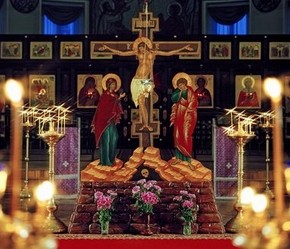
In Orthodox churches, special services are held on this day, which begin on Friday evening. The divine service is both mourning and festive, because Saturday ends Passion Week and is the beginning of Easter, preparations for which are inevitable on this day.
On Saturday morning (or Friday evening) the Liturgy of Basil the Great is served in Orthodox churches. From the middle of the day, they begin to consecrate dishes for Easter. From five or six in the evening the clergymen confess the believers. At the end of the Liturgy, the services in the churches end, and the readings of the Acts of the Holy Apostles begin. Shortly before midnight, Midnight Office is held - a special service during which the shroud is transferred to the throne, where it will stay exactly 40 days, until the Ascension of Christ.
In Jerusalem, on Great Saturday, a divine service is performed, at which the Holy Fire is brought out, which is a symbol of the resurrection of Jesus Christ.
Great Saturday for Orthodox fasting is the strictest day of Holy Week.
For those believers who do not fast, this day is also significant. It should be devoted to prayers, visiting the temple, preparing for the Easter day, it is necessary to refrain from vain worldly affairs.
What can be consecrated in the church?
It can be not only Easter cakes and colored eggs. It is perfectly acceptable to bring red wine, a few sips of which in Holy holiday no one will judge. Usually believers bring Cahors. You can also consecrate pastries: buns, cookies, cottage cheese dishes. As for meat dishes, it is impossible to say unequivocally, if there is a desire to consecrate them, it is better to check with the church if this is possible.
It is forbidden to carry strong alcoholic drinks (vodka, cognac), money and other material values(keys to the car or apartment). The Church does not recognize blood sausage. as acceptable food for eating, so you don't have to bring it.
Overeating on Easter is frowned upon by the church, so a large basket of food for consecration would be considered bad manners. You need to bring a little food, it is better to put it in a beautifully decorated basket, after consecration, cover the food with embroidered towels or napkins.
What can you eat on Great Saturday:
On this day, until the appearance of the first star, a strict fast is observed.
Many believers prefer to abstain from food altogether. Probably before the festive exuberance, this is wise. If a believer does not fast to such a strict degree, you can eat vegetable food, even hot food (for example, vegetable soup), but vegetable oil is prohibited, it can only be an exception.
According to the church charter, which, as a rule, not all believers observe, dry food is prescribed on this day, food should be even without vegetable oil.
But the church does not require the laity to strictly fast on Holy Saturday. The decision must be made on your own.
Definitely, you can’t eat fast food, until 3 a.m. next Sunday you can’t break the fast, drink alcohol.
How to spend your free time on Great Saturday:
This day should be devoted exclusively to preparing for the holiday, and preparation does not mean household chores, which are prohibited on this day, but the preparation of the soul. Prayer, rest (after all, you will have to spend the night in church), attending church - this is how Orthodox believers spend Great Saturday.
What can not be done on Great Saturday?
You can not sing, even if these are songs dedicated to God. This is a day of silence.
You can not celebrate birthdays and celebrate weddings. You have to abstain from sex. You should also not hunt or fish.
Household chores are prohibited: washing, cleaning, ironing, gardening and construction and repair work. You should not devote time to needlework. It is also better to take a bath in advance.
You can’t commemorate the dead, although you can visit your parents at the cemetery. You should be attentive and merciful, not deny others their requests. You can’t waste time on quarrels, disputes, fights, you can’t swear.
According to signs, one should not eat and drink while preparing food for the upcoming holiday. As soon as it is time to take the Easter cakes out of the oven, there should be no one in the kitchen except for the hostess. Otherwise, Easter cakes will be unsuccessful.
If the weather is sunny on Good Saturday, then wait for a warm summer, if it is cloudy, the summer will be cold and gloomy. Girls who stay up all night on Holy Saturday can expect a happy marriage. Good luck in work awaits men, farmers - an excellent harvest, all people - joy, good luck, health.
If a consecrated egg is dipped into water, the water acquires healing properties washing with such water will bring health and happiness. 
On Great Saturday, you need to do a lot of things: bake Easter cakes and bring to mind every Easter dish, paint eggs, decorate the house and be sure to go to church. But besides this, there are certain rules of Good Saturday: what you can not do on this day. It is about them that will be discussed in this article.
With special trepidation for the onset of this last saturday before Easter are people who observed great post. After all, Great Saturday is the last fasting day, which will end after the festive procession at midnight. In general, according to the church charter, it is desirable on Saturday, as well as on Good Friday, to abstain from food to the maximum: eat only bread and drink water. In principle, if you remind yourself that the festive meal is just around the corner, you will definitely find the strength to keep the fast for the last hours. Have you already decided how?
What is Holy Saturday dedicated to?
In addition to what you can’t do on Holy Saturday, there is a certain set of church rules that you need to remember. In particular, on this day they remember the reclining of the Body of Christ in the tomb. On this day, as church books write, the soul of Jesus Christ went to hell and told there that life triumphs over death.
In terms of what not to do this Saturday, when compared with other days of Holy Week, everything is quite democratic. Although, the holiday has not yet arrived, which means that certain prohibitions still need to be remembered.
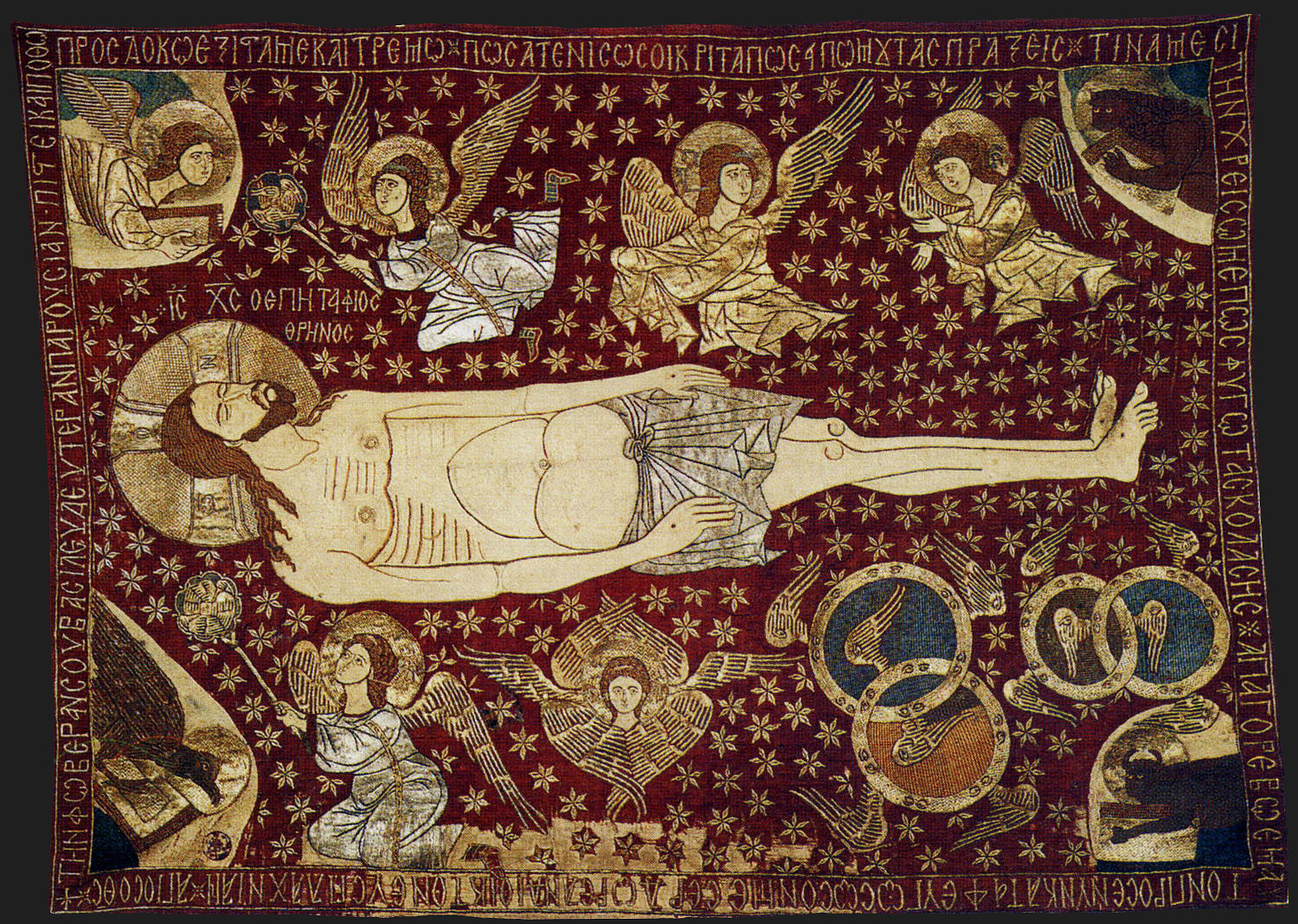
- Do not eat from three o'clock Saturday night until Sunday morning. Despite the fact that it is already at midnight, the festive meal is allowed only in the morning.
- If you are fasting to a minimum, but want to keep this day right, then you can’t eat the food that is cooked on fire or using vegetable oil.
- In no case do not drink, including red wine Cahors. Although, some priests emphasize that if a person observes a strict fast, he can drink a glass of Cahors to strengthen his strength.
- Give up fun. This is still fasting time, which means that we not only limit ourselves in food, but also in joy and fun. No matter how much you would like to sing and dance during the preparation of Easter cakes and Easter, it is strictly forbidden to do this.
- Refrain from intimacy. In general, this rule applies to the entire period of Lent.
- You can't go fishing or hunting.
- House cleaning in any form is already prohibited: do not wash, do not iron and do not clean. All the economic affairs of this plan should have been completed in Clean Thursday.
- Don't wash yourself.
- Refuse to work with the land, that is, leave your garden plots for a while.
- Of course, no needlework.
- All physical work is excluded, especially for various construction cases.
As can be seen from this list, the prohibitions on Holy Saturday concern not only the physical, but also the spiritual life of a person. Moreover, you can not refuse on this day to people who ask you for something.
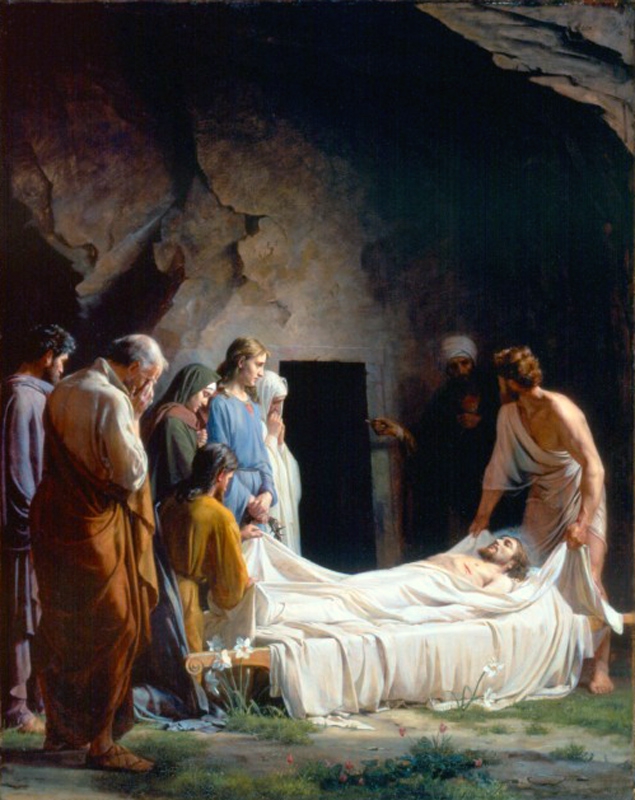
Important! Many go to the cemetery on Holy Saturday, but according to church law, this cannot be done. To commemorate the dead, there certain days and Great Saturday, as well as the day of Easter itself, does not apply to such days.
What else to remember
Do not swear and quarrel on the eve of Easter. You must allow faith, grace, love and goodness to enter your life and fill your heart. This is the most important and main preparation for such a bright and great holiday as Easter. You can cook on the festive table.
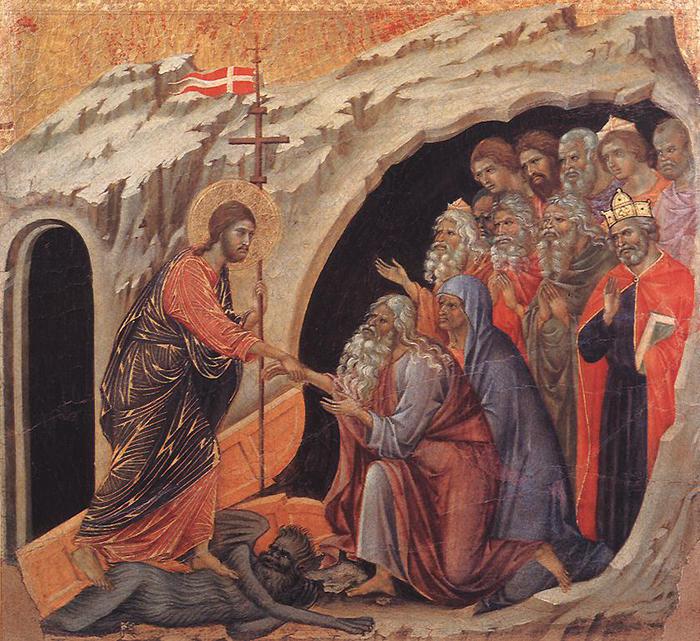
So, on Holy Saturday we finish preparing for Easter, we definitely go to church in the evening to bless the food in the baskets and defend the festive service. There are not so many prohibitions on Holy Saturday, but they exist and, if possible, you should try to comply with them.
Holy Week before Easter is 6 days from Monday to Saturday before the Resurrection of Christ. At this time, the sufferings of the Savior for the sake of atonement for human sins are remembered. Every day is called Great (Passionate), as the events that took place millennia ago are of great importance for all mankind. Believers pray earnestly, refrain from bad thoughts, and do good deeds.
Betrayal, condemnation, elevation to Golgotha, crucifixion, resurrection of Christ took place during the Passion (Red, Great, Red, Holy) week.

Every day has its own meaning and history. We will talk about the Great Holy Week. We will open what to do in Holy Week, what not to do and signs, we will talk about what you can eat every day.
Holy week before Easter: history
Believers listen to the parable of the withered fig tree that does not bear fruit, as a symbol of people dying because of their unwillingness to repent. Jesus saw no fruit on the tree and dried it up. Similarly, sinful souls are unable to bear fruit in the Kingdom of God.

Orthodox remember those read by Christ in Jerusalem Temple cautionary tales about the resurrection of the dead, the Last Judgment. The meaning of the sermons is in the need of believers to be ready every minute for a meeting with God, to be fearless to do good, not to give in to despondency.

On this day, it is appropriate to remember the virgin who anointed Jesus' feet with myrrh, wiped them with her hair, thereby preparing the Savior for the inevitable suffering on the cross. They compare the one who, being a great sinner, repented and came to Jesus, and the traitor Judas, who chose thirty pieces of silver - the death of his soul.

On Thursday, the Last Supper took place - the last supper of the Savior with his followers, after which Jesus prayed with the twelve Disciples in the Garden of Gethsemane.

From there, the guards took him after the betrayal of Judas Iscariot.

The saddest day, when the Savior was condemned, crucified, handed over the cross that he carried to Golgotha.

Jesus was crucified on the same cross. On the same cross, he accepted incredible suffering for the entire human race.

Jesus lay in the tomb, and his soul descended into hell.

Priests serve the liturgy in dark robes, then change into light-colored robes. It feels like a big holiday is coming. From the procession at 12 o'clock at night, the Bright Matins begins, when all believers joyfully greet each other: "Christ is Risen!"

What to do in Passion Week. What not to do and signs
Holy Week is the time of the strictest fast, which involves serious restrictions not only in food, but also in the ways of spending leisure time. So you can’t watch TV, celebrate any social events, waste time on entertainment, laziness. It is necessary to devote oneself to charity, mercy.
On Monday, the Orthodox began to clean their homes, repair furniture, throw away unnecessary rubbish, broken dishes. During the days of Holy Week, noisy human conversations fell silent. In the villages there were special people who followed the deanery and silence.
Signs
- Our ancestors believed that before Easter, evil forces were outraged, rejoicing at the torment of the Savior.
- It was believed that on the eve of the Feast of Feasts, the souls of the dead visit the earth to celebrate the miraculous resurrection of the Son of God.
On Tuesday, juiced milk is prepared from hemp and flax seeds crushed in a mortar, which are diluted with water. It had to be done at dawn secretly from the male half of the family. Pets were given this remedy to protect them from diseases.
On Wednesday they did special rite to save households from present and future ailments. With this method, the body seemed to be reborn. They took well (river) water. They were baptized three times, then a new towel was placed on top of a cup of water. At night, they were baptized again three times, doused with prepared water so that three sips remained. Then, without drying themselves, they dressed, and poured the magical water remaining in the cup into the grass.
On Thursday (he was called Clean), they carried out widespread cleaning in the dwellings, washed themselves. Sweeping was no longer recommended until Easter.
Signs
- At midnight the youth went to swim in the river. Those who bathed in the dwelling carried water to the house until dawn. Then a gold (silver) coin was placed in the river water to gain beauty, wealth, and health.
- The baby, who was one year old, had her hair cut for the first time. Girls equalized the ends of their hair for well-being and health. Bathed in baths from small to large.
- We counted three times all the banknotes, coins in the house in order to increase the amount.
On the fourth day of Passion Week, Thursday salt was made. To do this, it was poured into a cast-iron pan, heated, then crushed, sifted, consecrated in the church with Easter. kept whole year as a healing agent.

On Thursday, they began to color eggs, bake Easter cakes, bake hams.

On Friday, the hardest day of the week, when Christ was crucified, alms are served to the needy, food is distributed to the poor. Because of the torment that the Savior endured on this day, the fifth day of the week was called Passion. Washing is not allowed on Friday.
Signs
- You need to sweep all the corners in the house with a rag, which can then be used to treat sciatica. After the bath, they wipe their feet with such a cloth to get rid of ailments.
- They take ashes to help with alcoholism, spoilage.
- Whoever you see first on Friday will be the next three months: a man indicates wealth, family health all three months after Easter. The cat symbolizes good luck financial well-being, birds - good news.
On Saturday, Easter cakes, eggs, salt, Easter are consecrated. Orthodox are present at the evening service to celebrate Easter in the temple .A day of rest, when you need to realize the horror of what you did a millennium ago.

What you can and cannot eat during Holy Week
On Holy Week, it is necessary to adhere to the rejection of fast food and dry eating. That is, food cannot be processed thermally: boil, fry, bake. If the strength is not enough for such strict abstinence, then you can reduce the usual amount of food, eat once a day after seven in the evening.

- On Monday you can only eat twice a day. Bread, raw vegetables, fruits, cold water, nuts, honey diluted in water.
- On Tuesday, porridge without oil, compote of dried apples (pears) is allowed.
- On Wednesday, you must completely refuse food.
- On Thursday, boiled vegetables, hot soup, some red wine, food with vegetable oil.

- On Friday, abstinence from food and drink. Only at 3 o'clock in the morning you can eat a piece of bread, drink water.
- Saturday is dry.
![]()
Humility, rejection of evil in thoughts and deeds, purity of soul and body, mercy and compassion, helping our neighbor - all this allows us to become a little better, kinder, gain hope for the salvation of the soul, and rejoice at the miraculous resurrection of the crucified Christ.
The Son of God suffered for all sinners to give them the opportunity to enter the kingdom of heaven. In earthly life, realizing what happened thousands of years ago, we gain faith in the power of love and mercy.

We wish our readers harmony in the soul and life, light, warmth and kindness in thoughts and deeds. Live with love.

(Visited 37 times, 1 visits today)
![]()
The last day of Lent before Easter - Great Saturday - falls on April 15 in 2017. This is the day when Christians remember the presence of Christ in the tomb after the crucifixion, when His soul descended into hell to bring the righteous out of it.
The fast lasted for 48 days, and during this time, believers had time to think about their lives, remember the deeds of Jesus Christ when he was on earth, and prepare for Easter.
If the preparations are not over yet, then Good Saturday is the time to complete all the preparatory work.
For believers, Great Saturday before Easter is both a mournful and a joyful day: Christ still lies in the tomb, the Resurrection has not yet come, but everything is already filled with pre-Easter joy.
Great Saturday is popularly called Silent Saturday, since on this day it is not customary to have fun and have fun, it is worth refraining from various quarrels. On this day, foul language and swearing are considered a great sin, so you need to watch your language. Another name for Holy Saturday - Dyeing Saturday - indicates that it is time to start preparing dyes for Easter.
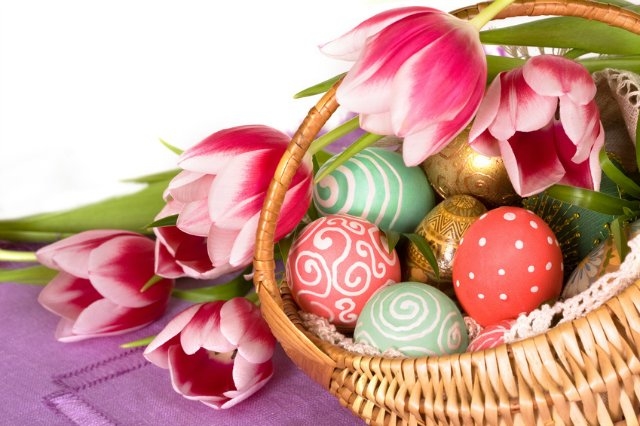
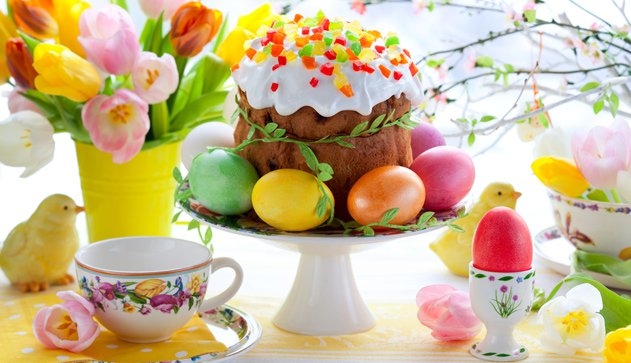
But the products that are prepared for the festive table are still not to be eaten. Those who observe Great Lent eat raw vegetables and fruits, bread and drink water. Housewives prepare Easter cakes if they have not baked them in advance.
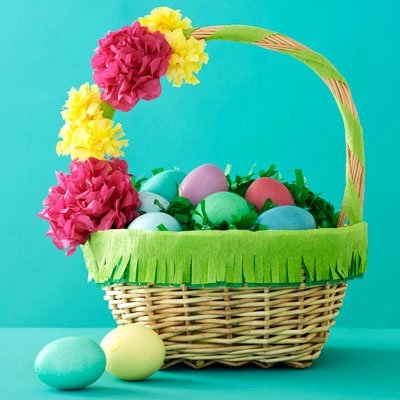
Traditions
On Saturday evening, the faithful, leaving "small" treats on the tables at home, gather in churches and cathedrals for the evening service; procession, after which the service continues. Arriving home, believers eat paska and go to bed. And only late Sunday morning the true holiday begins.
It is customary to collect the Easter basket not on the day of Resurrection, but on Holy Saturday. Each family in its own way selects the products that it considers necessary to consecrate, be sure to fill the basket with krashenka and Easter cakes. Housewives often cover their Easter baskets with embroidered towels. On Holy Saturday, women also decorate the house with branches of young trees and fresh flowers, which symbolizes a new beginning and the rebirth of life.
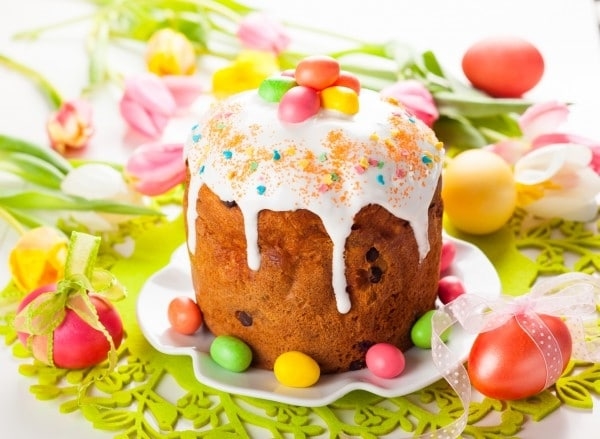

Every year on the Saturday before Easter, the Holy Fire descends in Jerusalem. Many thousands of pilgrims gather on this day in the Church of the Resurrection of Christ to observe one of the main miracles Orthodox Church. Tradition says that the year Holy Fire will not descend to earth, will be the last before the Last Judgment.
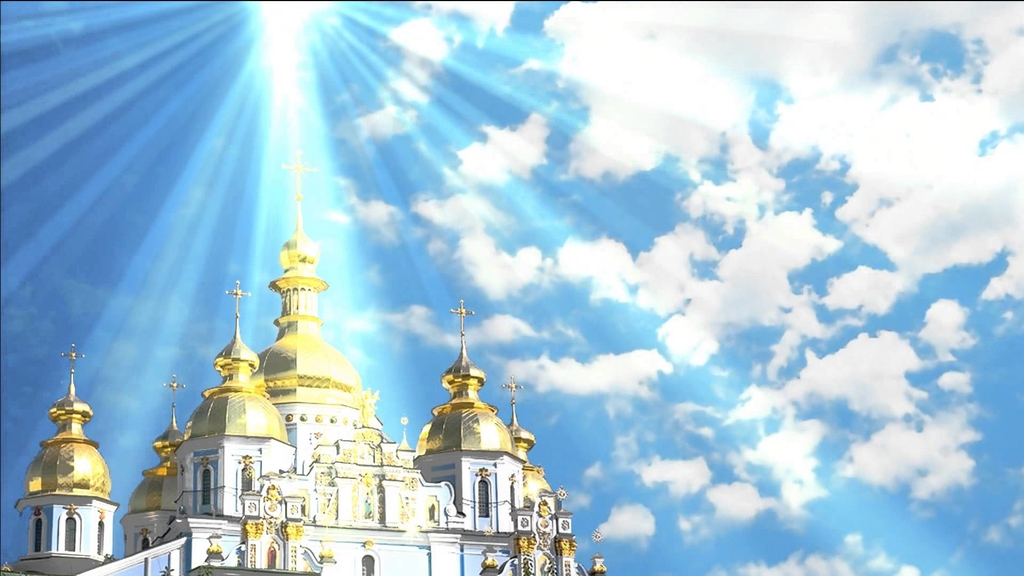
What not to do on Great Saturday:
* You can not break the fast from three o'clock on Saturday night until Sunday morning;
* Do not eat cooked food;
* Do not drink alcohol (those who observed a strict fast on Good Friday and were only on bread and water can drink some red wine to maintain their strength);
* You can not dance and sing;
* You must refrain from intimacy with your spouse;
* Do not go fishing or hunting;
* It is also forbidden to do house cleaning, ironing and washing things;
* You can not wash;
* It is forbidden to work in the garden and garden;
* There is also a ban on needlework;
* It is worth refraining from construction work and other physical work.
On this day, you can not refuse people's requests. Also, on Great Saturday, the dead are not commemorated, which means that they do not go to the cemetery. Every believer on the eve of a big holiday should try to behave righteously, not quarrel with anyone, not swear, and refrain from sorting things out.
Great Saturday is a day of kindness, reconciliation and forgiveness. Today, be sure to ask for forgiveness from everyone you might have offended. Make peace with everyone with whom you are at odds - do not overshadow tomorrow's holiday with negative feelings and emotions.

Also, on the Saturday before Easter, be sure to distribute alms to all the needy whom you meet on your way. Well, relatives and people close to you should not be left without Easter gifts.
Signs on Holy Saturday
On this day, it is considered a great sin to laugh and have fun. People say that whoever laughs on Holy Saturday next year will cry.
As on the previous two days, on the Saturday before Easter, nothing should be given away from home, no matter who asks you for something. Thus, you can give away your health, well-being, good luck.
On this day, you can clean the graves in the cemetery, but you can’t commemorate on Saturday.
If the weather on Great Saturday is warm and clear, then the summer will be hot and dry. And if that day is cold and rainy, then the summer will be cool.
Also, according to the sign, staying awake on Easter night contributes to good health, a good harvest, it will help girls to be happy in marriage, and it promises a successful hunt for young men.
The last day of Great Lent before Easter - Holy Saturday - falls on April 15 in 2017. about the presence of Christ in the tomb after the crucifixion, when His soul descended into hell to bring the righteous out of it, the site reports.
The fast lasted for 48 days, and during this time, believers had time to think about their lives, remember the deeds of Jesus Christ when he was on earth, and prepare for Easter.
If the preparations are not over yet, then Good Saturday is the time to complete all the preparatory work.
For believers, Great Saturday before Easter is both a mournful and a joyful day: Christ still lies in the tomb, the Resurrection has not yet come, but everything is already filled with pre-Easter joy.
Great Saturday is popularly called Silent Saturday, since on this day it is not customary to have fun and have fun, it is worth refraining from various quarrels. swearing and swearing, so you need to watch your language. Another name for Holy Saturday - Dyeing Saturday - indicates that it is time to start preparing dyes for Easter.

But the products that are prepared for the festive table are still not to be eaten. Those who observe Great Lent eat raw vegetables and fruits, bread and drink water. if they didn't bake them ahead of time.
Traditions
On Saturday evening, the faithful, leaving "small" treats on the tables at home, gather in churches and cathedrals for the evening service, at 12 midnight the procession begins, after which the service continues. Arriving home, believers eat paska and go to bed. And only late Sunday morning the true holiday begins.
It is customary to collect the Easter basket not on the day of Resurrection, but on Holy Saturday. Each family in its own way selects the products that it considers necessary to consecrate, be sure to fill the basket with krashenka and Easter cakes. Housewives often cover their Easter baskets with embroidered towels. On Holy Saturday, women also decorate the house with branches of young trees and fresh flowers, which symbolizes a new beginning and the rebirth of life.
Every year on the Saturday before Easter, the Holy Fire descends in Jerusalem. Many thousands of pilgrims gather on this day in the Church of the Resurrection of Christ to observe one of the main miracles of the Orthodox Church. Tradition claims that the year when the Holy Fire does not descend to earth will be the last before the Last Judgment.
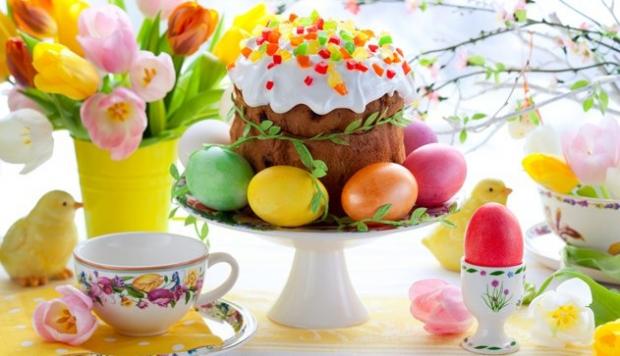
What not to do on Great Saturday:
- It is impossible to break the fast from three o'clock in the morning on Saturday until Sunday morning;
- Do not eat cooked food;
- You can’t drink alcohol (those who observed a strict fast on Good Friday and were only on bread and water can drink a little red wine to maintain their strength);
- You can not dance and sing;
- It is necessary to refrain from intimacy with a spouse;
- You can not go fishing or hunting;
- It is also forbidden to do house cleaning, ironing and washing things;
- You can not wash;
- It is forbidden to work in the garden and garden;
- There is also a ban on needlework;
- It is worth refraining from construction work and other physical work.
- On this day, you can not refuse people's requests.
Also, on Great Saturday, the dead are not commemorated, which means that they do not go to the cemetery. Every believer on the eve of a big holiday should try to behave righteously, not quarrel with anyone, not swear, and refrain from sorting things out.
Great Saturday is a day of kindness, reconciliation and forgiveness. Today, be sure to ask for forgiveness from everyone you might have offended. Make peace with everyone with whom you are at odds - do not overshadow tomorrow's holiday with negative feelings and emotions.
If you missed Easter
JoinInfoMedia journalist Kristina Kovtun learned that on the Saturday before Easter, you must give alms to all the needy you meet on your way. Well, relatives and people close to you should not be left without Easter gifts.
Signs on Holy Saturday
- On this day, it is considered a great sin to laugh and have fun. People say that whoever laughs on Holy Saturday will cry all next year.
- As on the previous two days, on the Saturday before Easter, nothing should be given away from home, no matter who asks you for something. Thus, you can give away your health, well-being, good luck.
- On this day, you can clean the graves in the cemetery, but you can’t commemorate on Saturday.
- If the weather on Great Saturday is warm and clear, then the summer will be hot and dry. And if that day is cold and rainy, then the summer will be cool.
- Also, according to the sign, staying awake on Easter night contributes to good health, a good harvest, it will help girls to be happy in marriage, and it promises a successful hunt for young men.






